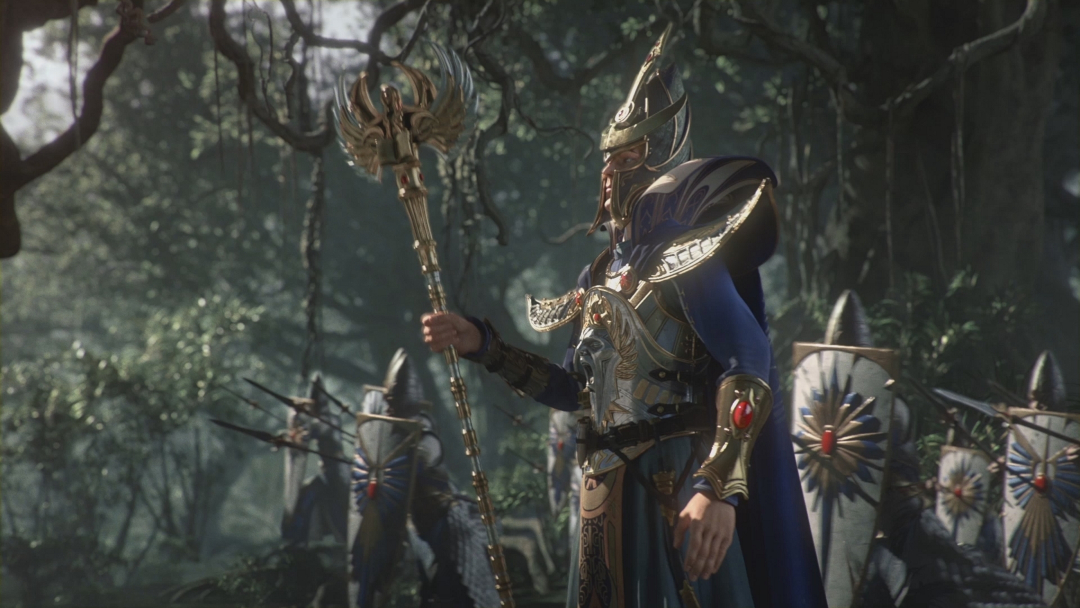After 5 years, it is time to return to tabletop games. Together with some friends, we explored the fantasy world of Warhammer, a strategic turn-based tabletop game. In Warhammer you battle fantasy armies on the battlefield. However, the current generation of real-time strategy games uses a lot of gameplay concepts from these tabletop games.
Even after a few minutes, most gamers will recognise the elements of real-time strategy games in the more traditional tabletop games. You are able to take control over different types of units, you plan attacks and predicting the movements and decisions of your enemies. It sounds familiar.
Traditional tabletop games
In Warhammer, the tabletop miniature wargame with a medieval fantasy theme, you observe the decision of your enemies and counter their movements. However, there are large differences between these tabletop games and the digital real-time strategy genre.
In order to keep an overview in a traditional tabletop game, each player has to wait for their own turn to react to the changes on the battlefield. To make the turn-based gameplay even more structured, the turns consist of multiple different phases such as a movement phase and a combat phase. These gameplay rules of the tabletop game are often been published in a series of books, known as rulebooks.
Turn-based gameplay elements
So far, the basic gameplay elements of tabletop games are comparable to these of turn-based strategy games or even turn-based role-playing games. At the beginning of your turn, you can move your soldiers and heroes to a different position and later engage in battle.
The real-time strategy games such as Total War - Warhammer are on a different level. These games use the gameplay mechanics as an elemental system to work with characteristics, dice rolls and arithmetics to predict the gruesome outcome of a complex battle. The decision to remove the turn-based gameplay system from tabletop games made a real-time battlefield possible.
React and make decisions later
As a gamer, you have to react as fast as possible to the actions of your enemies on the battlefield. In Total War - Warhammer, your decisions are made in real-time and have consequences. This means you have less time to interpret the tactics of the enemies before you give your own orders to your soldiers and squads. Sometimes, these choices decide who lives to see another day and who dies.
In a tabletop, you have the entire duration of the turn of your opponent to think about a manner to counter his or her movements and decisions. This means you have more time to detect weaknesses in the tactic of your enemies and use them to defeat their miniatures.
Pen-and-paper role-playing games
In a previous post, we discussed the influence of pen-and-paper role-playing games on games. The effect of tabletop games on the more traditional strategy games is similar to the origin of turn-based role-playing games. In short, the elements of the tabletop games were used as a source of inspiration in modern computer games.
More miniatures to collect
To be honest, I am not a real-time strategy gamer myself and prefer the fantasy battles in the tabletop game Warhammer. It is easier to follow the individual moves of your opponent and interact to them in a more structured manner. Technology improves many things and sometimes digital versions pf traditional tabletop games offer an added value, but there is nothing in the strategy game genre the tabletop games cannot keep up with.
The most important element of miniature-based tabletop games is assembling and collecting your personal legion of miniatures. You choose your own units and think about the tactics and strategies made possible by the types of units to defeat the opponents. This makes the miniature wargame even better than their digital turn-based or real-time counterparts.
The loss of one key element
In tabletop games you use your own collection of miniatures to represent the large hordes of fearsome warriors. The battlefield is a model tabletop comprising of miniature buildings, trees, hills and other terrain features. There is a deeper bond between you and the units used on the battlefield. Most video games in the strategy genre miss this deeper connection to the troops.
Real-time and turn-based strategy games may deliver a similar gameplay experience based on comparable rules, dice rolls and arithmetics often based on the rulebooks of existing tabletop and pen-and-paper role-playing games. However, these digital games lost the real-life and emotional connection to the armies you represent on the battlefield. The bond becomes less personal.
Do you enjoy this content?
Blogging and content creation is hard work. Donations are used to support this blog and its content. Do you want to help me create more and better content? You can now buy me a coffee.
Do you want to donate a different amount with PayPal? Please visit this page and select the exact amount you want to donate to help create more and better content.
Disclaimer. This post contains copyrighted images from Total War - Warhammer, a video game developed by Creative Assembly and published by Sega. The fair use of copyrighted works for purposes such as criticism, comment, news reporting or research is not considered as an infringement of copyright.

